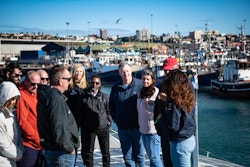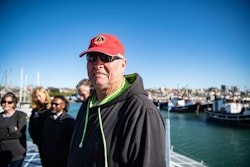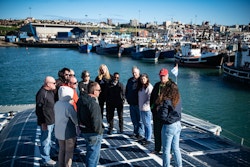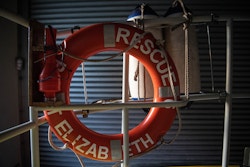Gqeberha, South Africa
After two days of sailing from Durban, Energy Observer took shelter in Gqeberha!
Coming from: Durban, South Africa
Weather conditions: Storm
Time of arrival: 12:00 AM
A challenging journey towards Cape Town
Weather forecasts predicting winds of up to 45 knots and 7-meter high waves forced our laboratory vessel to seek shelter. A blessing in disguise, as just before docking, our port engine cut out. An electrical problem that kept the team busy during this stopover...and which could have occurred in much more hostile seas shortly!
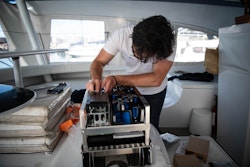
Energy Observer's arrival in Gqeberha
After being warned by Marin on the VHF, the team from Station 6 of the NSRI, the National Sea Rescue Institute, in Gqeberha came to help us maneuver! The vessel was running on her starboard engine and our zodiac... as a port engine!
“Now we're in a hybrid propulsion!”
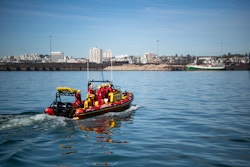
Energy Observer's arrival in Gqeberha
Gqeberha's trading port
Gqeberha is a trading port for exporting iron ore and manganese, of which South Africa has large reserves. From the vessel, we watched the spectacle of cargo ships loaded with precious ores.
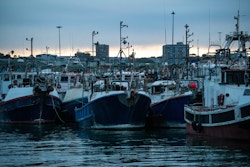
Gqeberha's trading port
Welcome on board!
Meanwhile, visits continue aboard Energy Observer. We welcomed children from the TS Lanhere Navel Cadets of the Gqeberha Yacht Club. These young people from underprivileged backgrounds live in townships, often without access to water or electricity. Navel Cadets is an integration program based on sailing, enabling them to escape into another world once a week!

TS Lanhere Navel Cadets aboard Energy Observer
We also welcomed many members of the Sea Rescue Team from Gqeberha!
“One of the most impressive vessel I’ve come across, I have a background in the Marine and I am an ex-chief pilot here in Port Elizabeth, quite honestly what you guys are doing here is so impressive and the technology, I d just love to see it rolled out worldwide. We shouldn’t be dealing with great big generators, the tech is here! ”
In return, the Sea Rescue Team invited our crew to visit their station, one of the largest in South Africa! Their mission is to save lives at sea and to do so, they have lots of fun gear, including special knives for delivering whales caught in fishing nets and a self-designed "zodiac" jet ski suitable for rescuing surfers (as there are no propellers to cause injury).
We also discovered that the warning buoys of Bay Watch are now fuchsia pink, because according to recent studies... pink looks better in water than red!
Next stop... Cape Town!
